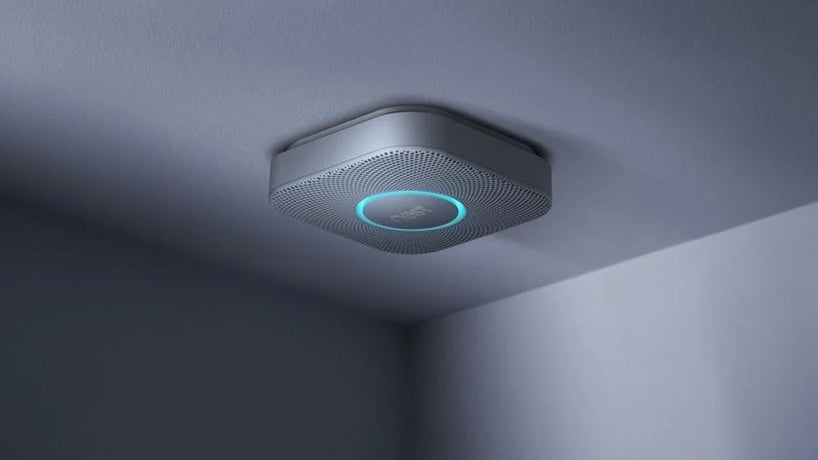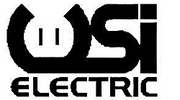- No products in the cart.
Understanding The Types of Smoke Detectors for Home Protection
23
Dec
There are many different smoke detector types, each one offering a unique specialization or additional security measure to detect fire better and ultimately save your life. But, much like other home improvement products, truly understanding what each of these devices can do isn’t so easy. So, in this article, we’ll delineate in close detail all that you need to consider when purchasing, installing, and understanding the types of smoke detectors for home use.
Right off the bat, smoke alarms are critically important in preserving home safety. They act as silent 24/7 guards that monitor smoke, gas, and other toxic chemicals inside your home and belt a shrill alarm as soon as it detects a possible fire.
It’s important to have them installed in very specific smoke detector locations: have at least one installed on every floor, inside bedrooms, and outside any other sleeping areas. Ideally, they should be centered on the ceiling and strung together in a loose order that will lead anyone trapped inside, to safety.

It may seem like a no-brainer, right? Just head into a hardware store and pick up the first one you see?
Wrong! That will only set you back. Choosing which detector to purchase actually depends on a few factors. Like any home improvement item, there are certain considerations to keep in mind, some of which we’ve went ahead and compiled for you below.
- Know the Different Types of Fire Detectors: There are 3 main types of detectors: ionization, photoelectric, and dual sensor. Each of these is better suited for different types of fires, something that we’ll get into more towards the end of this article. The point here is to understand your environment and purchase an alarm that is conducive to that.
- How Will It Be Powered: One of the biggest aspects to consider is how you intend to power the alarm. Many detectors require 9-volt, AA, or AAA batteries to operate, but newer models have lithium batteries to last the unit’s 10-year lifespan, while others can connect directly into the house.
- Think About the Size of Your Home: This one is pretty important for logistical planning. Since you need to place an alarm in every bedroom, floor, and large living area, understanding a rough idea of your home’s size will help you connect them. That way, when one detector goes off, the rest will follow.
There Are Laws You Must Follow
We want everyone to be aware that smoke detector requirements DO exist, and all homeowners are subjected to their adherence. Remember when we said you need to have detectors in certain areas of the home? Well, that’s actually a necessity, not a suggestion.

The National Fire Alarm and Signaling Code (NFPA 72), has mandated that all homes MUST have alarms in every bedroom, outside the bedroom, and at least one on every floor. Larger dwellings are sometimes subject to even further requirements depending on total number of rooms and square feet.
In fact, 13 states have enacted legislation that actually requires smoke alarms to have 10-year life expectancies. Currently, Oregon, California, Louisiana, North Carolina, Georgia, Maryland, Michigan, Massachusetts, Florida, Vermont, Maine, Minnesota, New York, and Illinois have state-wide laws. A handful of prominent cities also joins them: Louisville, KY; Philadelphia, PA; Milwaukee- WI; Phoenix, AZ; Madison, WI; and Indianapolis, IN.
Know What You’re Buying
As mentioned earlier, there are mainly three types of smoke alarms readily available everywhere: ionization, photoelectric, and dual-sensor. Here’s what each one does, and what to expect from them.
- Ionization Smoke Alarm: Developed to detect “fast flame fires”, this unit type is anywhere from 30-90 seconds faster in detecting rapidly spreading flames than its counterparts. The guts are comprised of two plates that power a continuous electric current, and if smoke particles invade the main detection chamber and disrupt that current, the alarm will go off.
- Photoelectric Smoke Alarm: Designed to detect “smoldering flames”, this unit is 15-50 minutes faster in detecting slow burning and slow developing fires. The inner chamber is comprised of a light beam and its receptor cell (photocell); once any smoke particles cause a reduction, or increase, in the light, the alarm will be triggered.
- Dual Sensor Smoke Alarm: A happy-hybrid of the two options listed above, this alarm employs both detection technologies, for smoldering and fast fires, to get maximum smoke coverage. The point of this model is to remove the guesswork when you’re wondering which smoke detector is better: ionization or photoelectric.
- Interconnect Alarm: Ideal for larger, more spread-out homes, these alarms have a unique feature that allows you to connect them, either through hard-wiring or wirelessly. If a fire does occur, then the first alarm that detects smoke particles, will activate and subsequently alert all other detectors that have been connected to it.






































I need to replace smoke alarm
i12060A that is what I have now . My house is 5 years old and they were installed when build. I have replaced the battery but keep on churping, what am I doing wrong? If you have replacement alarms I need 2 .